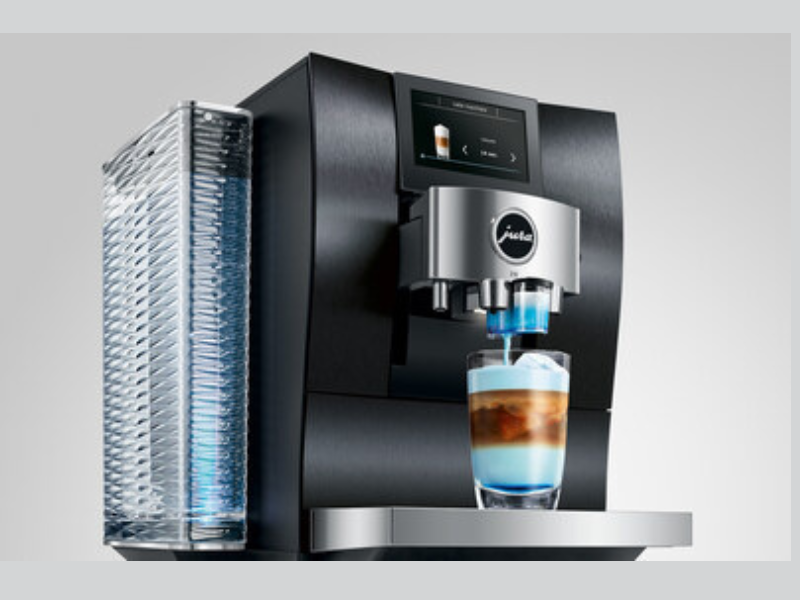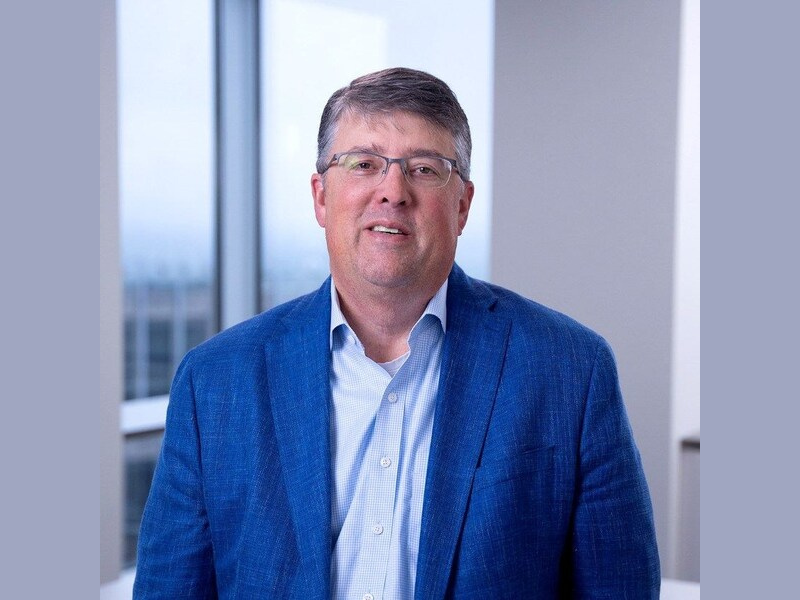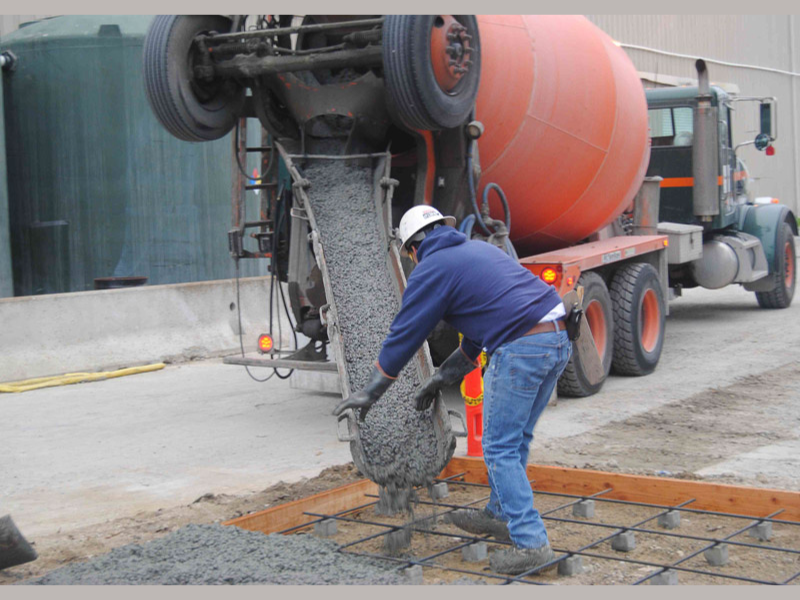Fortera’s new ReCarb Plant is co-located with CalPortland in Redding, Calif. This first-of-its-kind plant executes Fortera’s patented ReCarb process technology on a commercial scale, while also providing the building and industrial sectors with a scalable solution to reduce carbon emissions.
Cement production accounts for roughly 8% of global carbon emissions, and in a milestone step toward adoption and lowering emissions now, materials technology company Fortera has opened its Redding ReCarb® Plant, one of the first industrial green cement and carbon mineralization facilities in North America and one of the largest of its kind in the world. Located in Redding, California, Fortera’s plant will capture carbon dioxide (CO2) emitted during cement production and permanently sequester it by mineralizing the CO2 into ready-to-use cement. Not only will this reduce carbon emissions by 70% on a ton-for-ton basis and eliminate feedstock waste associated with traditional concrete production, but every year, the facility will capture 6,600 tons of CO2 and produce 15,000 tons of low-carbon ReAct® cement. Fortera will integrate with green energy supply at future plants, achieving true zero-CO2 cement.
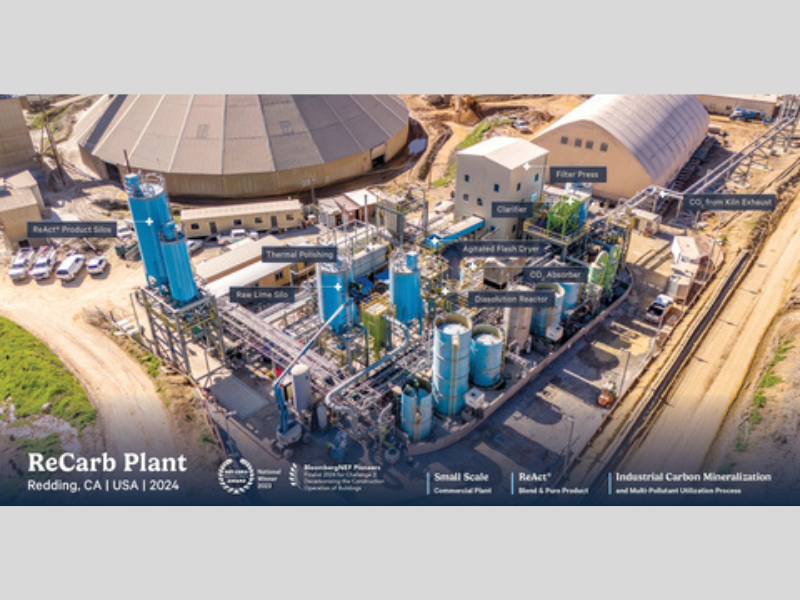
“Redding is the first of many plants in Fortera’s future as a green cement producer, and achieving this milestone brings the industry that much closer to realizing zero-carbon cement, which is critical for both our continued infrastructure and the health of our planet,” said Ryan Gilliam, CEO of Fortera. “While significant, we recognize this is one step in a much larger effort to reach commercialization globally, and we are committed to scaling our technology using existing infrastructure to mobilize widespread adoption of low and zero-carbon cement.”
Fortera’s ReCarb process is a collaborative bolt-on technology that works within existing cement production infrastructure rather than building new stand-alone plants from the ground up, providing a sustainability solution that can be implemented quickly, economically, and efficiently. In Redding, Fortera’s ReCarb facility is adjacent to CalPortland’s cement plant. Fortera captures CO2 emitted during calcination—the process occurring when limestone is heated in a kiln—and draws the gas from CalPortland’s flue gas stack into the ReCarb plant, where it undergoes mineralization to transform the gas into ReAct green cement, a rare form of calcium carbonate.
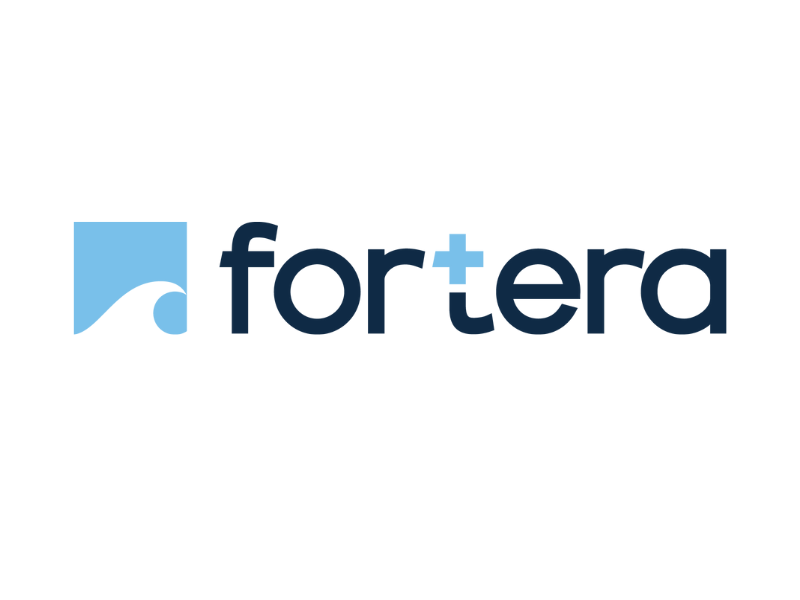
“For 132 years, CalPortland has developed resilient and sustainable cement and concrete products. We understand the importance of using science-driven research to continue to develop new and innovative products that will have a positive impact on the future,” said Steve Regis, CalPortland Executive Vice President. “We are excited to partner with Fortera at our Redding Cement plant as they develop their new ReCarb technology and congratulate them on the completion of their new facility.”
Since cement is the most significant source of CO2 emissions in concrete production, the ReCarb technology reduces carbon emissions throughout the value chain without imposing substantial capital costs and creates a product that is just as effective as ordinary cement. ReCarb also increases overall product output. When limestone is heated in a kiln to make ordinary cement, nearly half is lost as CO2. Mineralizing those emissions through ReCarb produces a ton of green cement for every ton of limestone feedstock used. Further, ReCarb reduces energy use by using a lower kiln temperature and creates a path to zero CO2 cement when combined with renewable energy.
Following the opening of the Redding ReCarb plant, Fortera will begin producing ReAct green cement, which will be available later this quarter for ready-mix suppliers. ReAct can be used on its own or blended with ordinary cement. It is ASTM-approved, exhibits the same strength and durability as ordinary cement and complies with existing regulations. When blended, ReAct lowers the overall carbon footprint of construction projects while maintaining strength and increasing workability.
The Fortera Redding ReCarb Plant is the culmination of over 100,000 hours of research and development and more than a decade of rigorous testing and real-world product demonstrations.
Interested to know about companies that offers similar type of services such as sustainable energy, zero carbon industrial power and more? Then please visit these web pages:
Pioneering sustainable practices in Britain’s energy industry
Sinopec and TotalEnergies Sign Agreement for SAF Production
Vision RNG and WIN Waste Innovations Collaborate on Sustainable Energy Projects
Bolt.Earth garners USD 20 Mn funding boosting the EV Ecosystem


